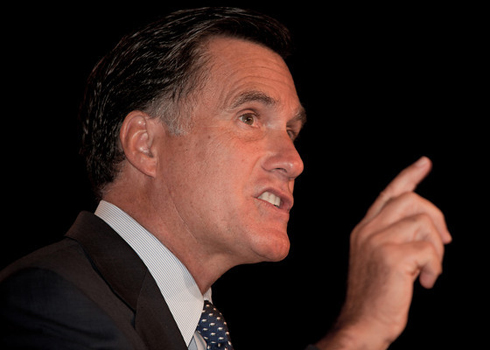Weeks away from the first debates of the Republican presidential primary and the pool of candidates is uncertain and getting smaller, leaving open the possibility of a much tinier and less predictable field than was widely expected.
It’s more than just hesitance among potential contenders to form an exploratory committee or formally announce a campaign. Few, if any, observers doubt Mitt Romney and Tim Pawlenty will hop in the race, for example. But the two potential candidates with arguably the largest group of core supporters, Sarah Palin and Mike Huckabee, are sending mixed signals about a possible run, with major implications for the rest of the field.
Huckabee has insisted that he be taken seriously as a contender in interviews, but he appears to be doing little to prepare for a run. Politico’s Mike Allen recently noted that neither Palin “nor anyone on her behalf, is courting top donors, early-state activists or experienced operatives — all of whom are getting locked down, day by day.” That leaves her entry far from a sure thing.
Another big name, Indiana Governor Mitch Daniels, has suggested recently that an overlong statehouse session could force him to give up his national plans.
After months of polling showing Romney, Huckabee, and Palin each drawing the largest chunks of national Republicans, any dropouts would have strong implications for the second tier of possible candidates who do not have previous experience from 2008, such as Pawlenty, Haley Barbour, and Rick Santorum. Huckabee or Palin’s absence would free up a large chunk of socially conservative and evangelical voters, who are a key demographic in Iowa and who Romney struggled to court in 2008. If doubts from the previous election linger in 2012, these voters could prove a force by consolidating behind one of the less established candidates, elevating one of them into a two-man race with Rommey.
The past few weeks have offered a solid preview of how this dynamic might look against Romney, especially for Pawlenty. The Minnesota governor slammed the health care reform law’s individual mandate in his keynote speech at CPAC last month, which many interpreted as a dig at Romney’s similarly crafted health care law in Massachusetts. Pawlenty is going out of his way to court Tea Party activists, speaking at a national convention in Arizona recently while local activists say his are aides aggressively courting the grassroots in Iowa. He’s also made religion a major theme in speeches and with Mike Pence out of the race, a candidate many considered especially well-suited to court Iowa evangelicals, there’s an even greater opening for him to woo social conservatives unsure about Romney.
Pawlenty wasn’t the only one showing flashes of how they might compete against Romney. Mississippi Gov. Haley Barbour went after Romney hard over health care in a speech last week, linking him in a speech to Ted Kennedy and current Massachusetts Gov. Deval Patrick.
With recent court decisions on the health care law keeping the issue in the news and attacks intensifying as the 2012 campaign gets under way, Romney has defended his plan in more detail recently. In a speech in early primary state New Hampshire this week, Romney conceded that his state’s plan “wasn’t perfect” but insisted that he would not try to apply it on a national level.
“I would repeal Obamacare, if I were ever in a position to do so,” he said. “My experience has taught me that states are where healthcare programs for the uninsured should be crafted, just as the Constitution provides. Obamacare is bad law, bad policy, and it is bad for America’s families.”
As long as the other national heavyweights hesitate, expect to see plenty of more tussles between Romney and everyone else along these weeks. With little competition for the “frontrunner” label with Palin and Huckabee out, Romney will almost certainly absorb the bulk of the rest of the field’s attacks as they look to position themselves as the conservative alternative.






